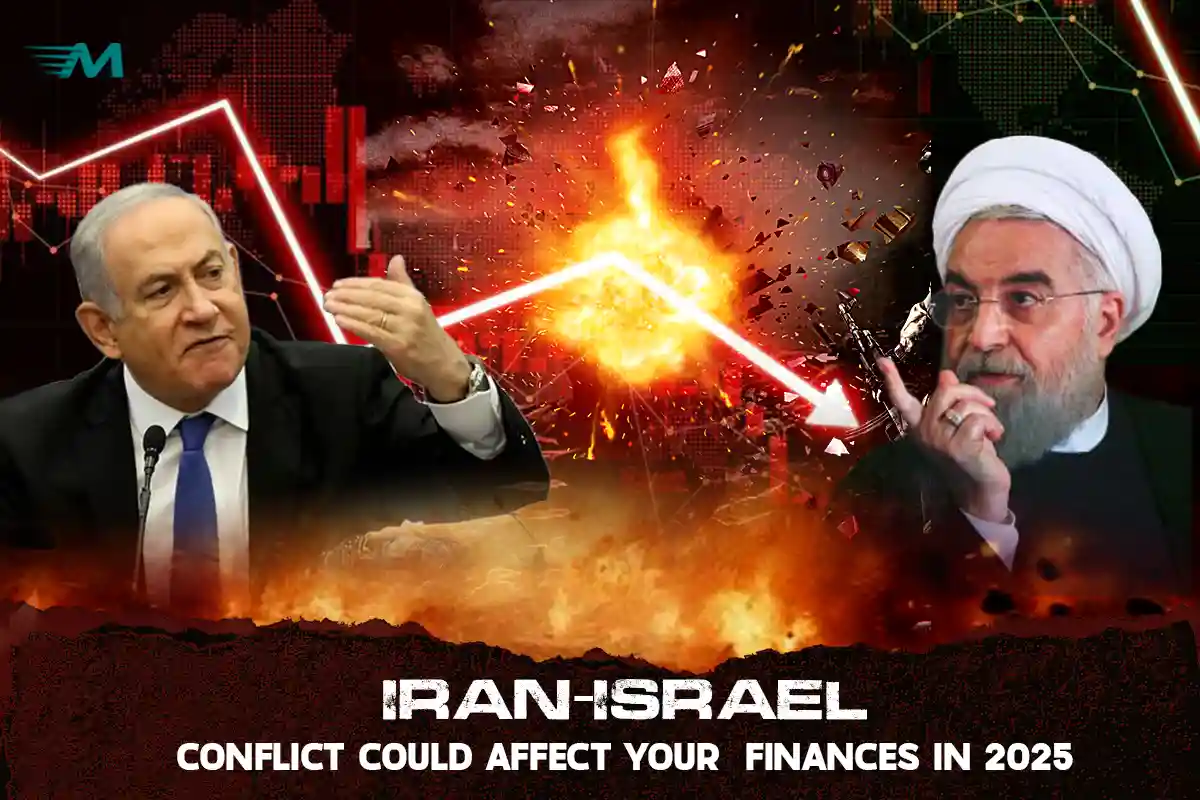How the Iran-Israel Conflict Could Affect Your Finances in 2025
As tensions escalate in West Asia, the ongoing Iran-Israel conflict is beginning to stir economic ripples that could touch the daily lives of millions of Indians. From rising fuel prices to potential volatility in gold and equity markets, your personal finances may soon be affected.
While the situation remains under control for now, experts are closely monitoring developments, and you must understand how this geopolitical event could affect your financial stability.
Rising Fuel Prices: A Household Concern
If you’re managing a household budget, one of the most immediate concerns is the price of fuel petrol, diesel, LPG, and CNG. India imports over 90% of its crude oil and approximately half of its natural gas, primarily from West Asian countries.
Crude oil is refined into everyday essentials like petrol and diesel, while natural gas powers cooking gas, CNG vehicles, electricity generation, and fertilizer production. However, with the Iran-Israel conflict escalating, there are growing fears of disruptions in global oil supply chains, which could lead to a sharp increase in fuel costs for Indian households.
The recent reported strike by the U.S. on Iranian nuclear sites has heightened tensions, leading Iran to threaten closure of the Strait of Hormuz. This narrow waterway handles about 20% of the world’s oil and gas shipments, and roughly 2.2 million barrels per day of India’s oil imports pass through it. Any disruption could trigger a spike in prices.
Two out of every three LPG cylinders used in India come from the Gulf region. If supply chains are disrupted, expect an increase in domestic LPG and CNG rates. However, Oil Minister Hardeep Singh Puri has assured that India has ample reserves and has already diversified its sources, including Russia, the U.S., and Brazil. Moreover, India’s largest gas supplier, Qatar, does not rely on the Strait of Hormuz.
Impact on Borrowers and Interest Rates
An increase in fuel prices typically leads to inflation. If inflation rises, the Reserve Bank of India (RBI) may reconsider its current stance on interest rates. Although RBI has recently shifted to a neutral monetary stance from an accommodative one, further inflationary pressure could result in a pause or reversal in repo rate cuts.
This could directly impact your EMIs if you’re a borrower, especially for loans linked to the repo rate. In short, lower rates may not last as long as previously expected.
Equity Markets: Prepare for Volatility
Equity markets do not like uncertainty, and geopolitical conflicts are prime sources of volatility. Retail investors could see short-term turbulence in their portfolios as market sentiment reacts to conflict headlines. Companies in oil marketing, aviation, petrochemicals, chemicals, paints, tyres, automobiles, and fertilizers are especially vulnerable due to their dependency on global trade routes and fuel prices.
Stocks tied to trade with Iran, Israel, and the broader West Asian region could also take a hit. Mutual funds holding these stocks may see NAV fluctuations, affecting even passive investors. On June 23, oil prices hit their highest levels since January, underscoring the sensitivity of global markets to developments in West Asia.
Gold: The Traditional Safe Haven
In times of geopolitical stress, gold tends to shine. It acts as a hedge against uncertainty and inflation. Since early June, the price of 10 grams of 24-carat gold in India has surged by over ₹3000, currently standing at ₹1,09,130. If tensions intensify further or more nations become directly involved, gold prices could rise even higher.
However, some financial experts argue that the U.S. budget deficit may play a more significant role in driving gold prices than regional conflicts. Still, for Indian households, investing in gold remains a time-tested strategy for financial cushioning.
Final Thoughts: Stay Calm, Stay Informed
While it’s too early to panic, being aware of the possible impacts of the Iran-Israel conflict on your finances can help you make informed decisions. Monitor fuel prices, stay updated on RBI announcements, and consider how your investment portfolio might respond to continued volatility.
The geopolitical landscape may be uncertain, but your financial strategy doesn’t have to be. Stay diversified, keep a portion of your assets in safe-haven investments like gold, and prepare for interest rate swings. In uncertain times, financial awareness is your strongest asset.

